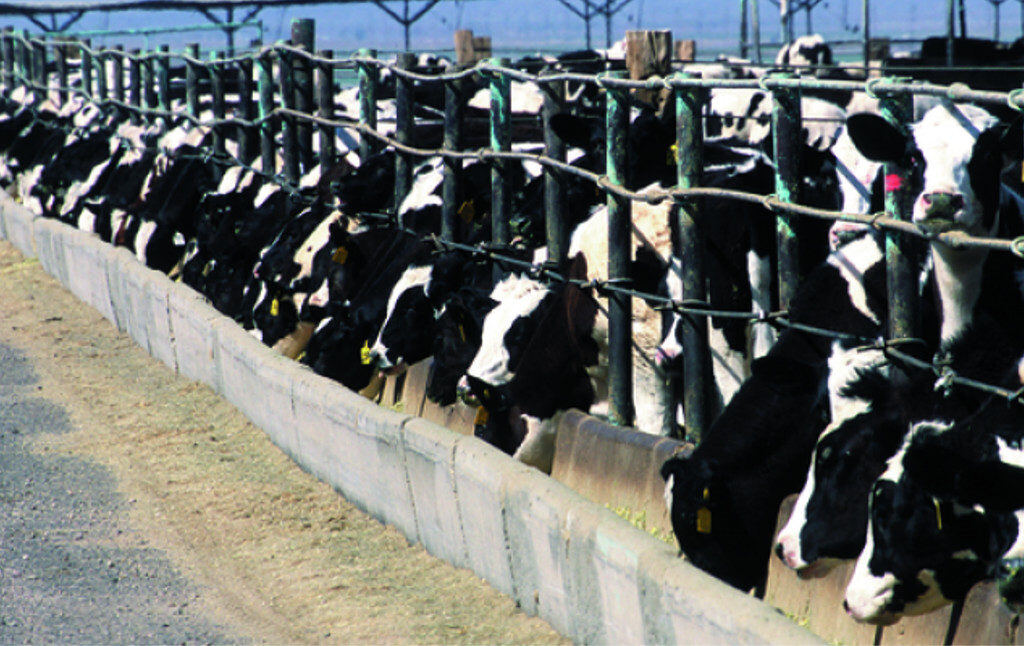If you appreciate our work, please consider making a donation, purchasing a subscription, or supporting our podcast on Patreon. Current Affairs is not for profit and carries no outside advertising. We are an independent media institution funded entirely by subscribers and small donors, and we depend on you in order to continue to produce high-quality work.

Animals and 2020
Animal rights are important and should not be a secondary political issue…
If animals could vote, Cory Booker would be president. Booker is the only open vegan in the 2020 race, and has commented previously on the environmental problems of “billions of people consuming industrially produced animal agriculture.” Booker was the first vegetarian elected to the senate, and has even made other members of Congress eat vegan food.
To be honest, it still isn’t much. Booker doesn’t talk much about animal rights, and has publicly framed his veganism as a “sustainability” issue. He has sponsored some worthy pieces of animal-protection legislation, and posted a video of some rescued turkeys on Twitter, but it’s hardly a crusade.
That’s understandable given how small the vegan constituency is. Only 2 percent of Americans are vegetarian, and only ¼ of those are full vegans. Ethical objections to eating animals are not widespread.
But the killing and eating of animals, especially on a gigantic industrial scale, presents deep moral problems, one few people want to confront. As Glenn Greenwald said in a recent interview with Current Affairs, “You can tell yourself that there are moral distinctions between the animals that you value and the animals that you don’t. But none of them are sustainable upon any kind of minimal scrutiny.” The mass torture and killing of dogs would be a national scandal, but the same acts inflicted on pigs are an accepted part of the food system.
It’s not that the public is morally callous. Opinion polls show virtually unanimous support for raising livestock humanely, but nearly all animals are raised on factory farms that give them horrific existences from birth to death. It’s an issue we just prefer not to think about, because accepting its full moral implications would be deeply discomforting.
No 2020 presidential candidate is going to want to talk about animal welfare issues. In Iowa? Are you kidding? There’s just nothing to be gained politically, given that the affected constituency cannot vote. There is no big public push to talk about animal rights, and many people still think that if you talk about animals you’re devaluing humans, or that it’s a “none of your business” judgment on their personal dietary habits.
Anyone who accepts, though, that animal welfare is compelling and urgent (as I do) should want to make sure it becomes a priority for the next administration. Candidates should be asked about it. We’re actually at a very promising moment right now; as Jacy Reese writes in The End of Animal Farming, even though slaughter is being conducted on a historically unprecedented scale, it is also finally conceivable that someday no meat will be from live animals. (The off-putting phrase “lab-grown” is misleading, it’s more like “factory-made.”) In exciting news, Burger King is starting to serve the “Impossible Burger,” which gets us closer than ever before to replicating the taste of meat without the accompanying torture and death. (Burger King has long stood out from other fast food places by offering a veggie burger, and over the years has been a godsend to me on road trips. Also, here is a picture of me about to eat an Impossible Burger at “Meals from the Heart” in New Orleans. As you can see, it looks tasty. It was. )
It’s imperative that political candidates be pressured to commit to a pro-animal agenda, and then held to that commitment. They won’t all go vegan, I’m sure (I won’t even go vegan myself). But some things should be basic:
- Getting passed, and then signing into law, all the items on the agenda of the Congressional Animal Protection Caucus, which has 130 members. These include: the Preventing Animal Cruelty and Torture Act, which improves federal prohibitions on extreme animal cruelty; the Shark Fin Sales Elimination Act, which outlaws the shark fin trade; a ban on exporting of American horses to slaughterhouses (100,000 horses are exported a year for killing); the Providing Responsible Emergency Plans for Animals at Risk of Emerging Disasters (PREPARED) Act, which “would require that zoos, animal dealers and research facilities have contingency plans in place to safely evacuate animals in the event of a natural disaster or other emergency.”
- Supporting a national version of California’s Proposition 12, which established minimum space requirements for farm animals
- Directing the U.S. Fish and Wildlife Service to crack down on trophy importation
- Public investment in research on plant-based meats. The sooner we can reach new breakthroughs in replicating meat humanely (and doing so inexpensively), the sooner we can hope to see a permanent end to industrial animal farming
- Ending the subsidies that artificially lower feed prices, thereby causing more industrial animal farming and disincentivizing the move to plant-based alternatives. Making animal farming costlier is a good thing. First, it better reflects the “true costs”—animals’ wishes are not taken into consideration in the market. Second, it will increase the financial pressure for companies to invest in plant-based meats.
I am sure those who work more closely on these issues than I do have other recommendations. It is difficult for me, given the scale of the problem, to think about practical solutions beyond hoping plant meat gets so good so quickly that everyone will be eager to switch. But thinking practically is critical; animal rights are often seen as an issue of secondary importance, or a niche activist cause. But the daily pain and suffering inflicted on billions of animals should demand urgent political attention.





